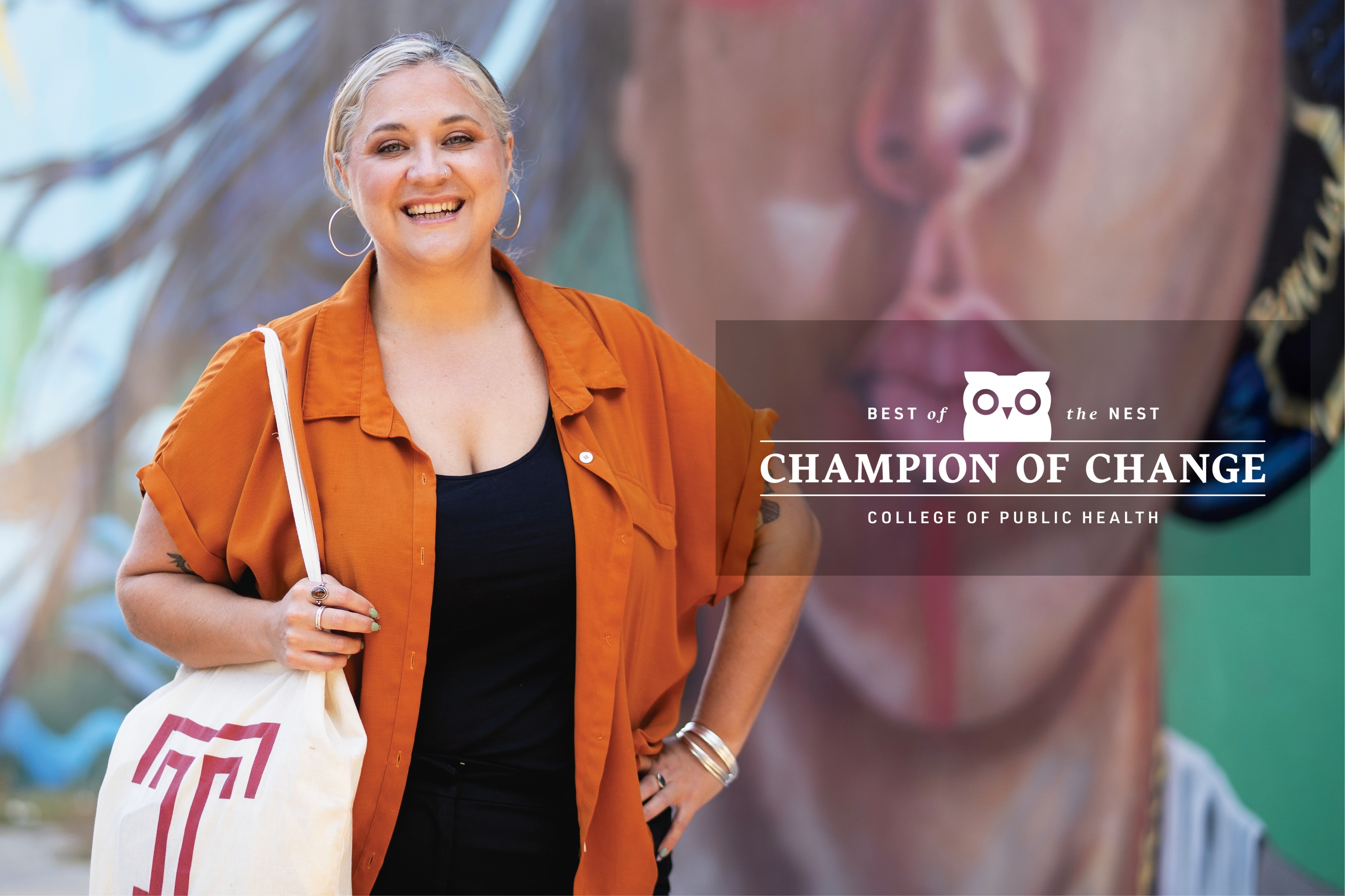Dr. Felicidad Garcia never expected to begin a career in speech-language pathology halfway across the world, in a Cambodian village as a Peace Corps volunteer. Today, she serves as an Assistant Professor of Instruction and Undergraduate Program Director in the Department of Communication Sciences and Disorders (CSD) at Temple University’s College of Public Health (CPH), known for her expertise in dialects, bilingualism, and culturally-informed teaching. But her path to Temple began far from the clinic—first in AmeriCorps, then the Peace Corps, and ultimately in that Cambodian village where an online course in speech science sparked a new passion.
“I’d bike into the nearest town to download course materials, then return to my village to study,” she recalls. “I absolutely loved it. I thought, ‘this is so cool.’”
After returning home to Miami, Garcia completed a certificate program to fulfill prerequisites and then pursued graduate study. She went on to earn her master’s degree at Teachers College, Columbia University, where encouragement from a mentor led her to turn a research project on African American English into a dissertation, and eventually, a PhD.
As her academic focus sharpened, Garcia became increasingly drawn to the ways dialects reveal both identity and inequality. Growing up bilingual, she was struck by how language varieties carry social weight. “Everyone speaks a dialect, even if they don’t realize it,” she explains. “What fascinates me is how society attaches stigma to certain dialects and equates them with intelligence, when linguistically there’s no difference.”
Philadelphia, her adopted city, has become a living classroom. From the distinctive South Philly dialect around the Italian Market and the well-known Delco English that surfaces throughout the region, to rural Pennsylvania phrases like ‘the laundry needs washed,’ Garcia uses local examples to help students see that language differences are everywhere. “When I highlight these examples, students suddenly realize, ‘Oh, that’s why my family says that.’”
Her personal story also shapes her role as a mentor. As a first-generation college student, Garcia often felt adrift in higher education. “Even during my PhD, I didn’t understand things like academic resumés or dissertation funding. I felt like an imposter.” Those challenges now inform the advice she gives students. “If you’re burnt out, give yourself permission to pause. Graduate school will still be there when you’re ready. The years I stepped away weren’t detours—they made me realize education is a privilege, not just a checklist.”
At the heart of her teaching is a call for humility. “Your knowledge changes depending on what room you walk into,” she says. “Everything you know comes from your lived experience, so stay humble when working with people who are different from you.”
In 2023, Garcia was accepted into the Provost Teaching Academy and later received the CPH Excellence in Teaching Award. She describes herself as a “teaching nerd,” proud of her dedication to pedagogy and the preparation of students to serve diverse, urban populations. “Temple is nested in its community—you can’t separate our free speech clinic from the city. That connection keeps us grounded.”
From years of service work to preparing the next generation of clinicians at Temple, Garcia’s story reflects the value of non-linear paths. For her students, the lesson is clear: embrace diverse experiences, remain curious, and recognize that language is never just words—it is culture, identity, and connection.
Learn more about the services offered at Temple’s Speech-Language-Hearing Center and explore academic opportunities in the Department of Communication Sciences and Disorders.

